SUMMARY
This is AI generated summarization, which may have errors. For context, always refer to the full article.
![[Newspoint] A fighting presence](https://www.rappler.com/tachyon/2024/07/thought-leaders-a-fighting-presence.jpg)
The following piece is an adaptation from a talk the writer gave on June 29, 2024, to an audience organized by the Vinzons Policy Center. It is, as was the talk itself, a further refinement of his call, first published here, for “an alternative constituency.”
Where are we – mainly in terms of social equality?
Forget the numbers. Whoever does the poverty math, like other official maths, does it for the propaganda benefit of the ruling power, therefore expected to misrepresent those numbers suitably. In any case, 20-plus percent of the population seems to have become a sort of standard, a conceded safe ceiling, a number people have gotten used to. Bring it down just a fraction too much and the anomaly is bound to provoke suspicions – Why don’t I feel any less poor?
Anyway, the all-too-visible truth is that there are far more poor than officially reported. And their ranks are yet bound to grow, not only as a result of population growth, itself highest among the poor, but because the rich continue to take away not just from them but from everyone else below them, thus creating more and more nouveau poor. In fact, Filipinos multiply faster (1.5%) than any other nation in the region, except Singapore, which, with a population of fewer than 6 million, can well afford its 3.3 rate; it actually incentivizes growing its families.
Economic development is a painfully slow process, to be sure, and slower still for the poor to sense – they are in fact the last to benefit from it, if at all. That being the case, our own poor have been brought to a point so low they see nothing short of a miracle saving them. And, having been in fact stuck there for generations, they have become predisposed to dreaming that a redeemer will come one day soon for their instant deliverance.
And so, election after election, they fall for the same bad joke politicians play on them: When you wake up in the morning, you’ll be better off. Why do you think we have gotten ourselves, in a mere generation, an Estrada, an Arroyo, a Duterte, and another Marcos, the son himself of the dictator who presided over a reign of torture, murder, and plunder for 14 years?
In the years following the liberating fluke of People Power, in 1986, when we booted out the dictator Ferdinand Marcos Sr., in merely four days, in a million-strong protest vigil and without any blood being shed, we became so ecstatic, then so smug, we didn’t care building on it. Well, we’ve come full circle from Ferdinand Sr. to his Junior.
But whose fault? Definitely not the poor. Under a rigged system of governance, they have been condemned to poverty – poverty of opportunity, poverty of means, poverty of health, poverty of education, poverty of self-worth. The so-called free vote is for them not an exercise of democratic choice but an act of desperation. To blame the poor for anything at all is to add the worst insult to the worst injury. The only ones guilty here are those who profited under the criminally lopsided social system and consequently contributed to the deprivation of those who lost under it.
Both for realistic planning and for sustaining a righteous indignation for inspiration, it’s good to keep in mind that the chief enemy are the corrupt officials and the incurably acquisitive rich: They form a covetous partnership that leaves a limited pool from which to enlist volunteers willing and able to make compensation, and also a limited source of logistics.
But compensation, how? Central to the whole idea is the organization of an alternative constituency, one set apart by moral and political commitments among its constituent citizens to one another – a more or less self-contained, self-sustaining, and self-reformative constituency.
First, the moral part. It calls on the benefactors to share some of their easier living with as many of their less fortunate fellows as the constituency’s logistics can carry. Some of those benefactors may in fact have begun doing it on their own – providing or finding livelihoods for some of the income-less, emergency aid for some of the desperate, free or subsidized schooling for indigent children, and any other form of assistance that proverbially constitutes providing the knowhow for fishing, instead of supplying the fish itself, otherwise self-effort among the beneficiaries is not promoted and self-respect is eroded.
It was precisely that benevolent communal spirit that got many of the poor through the pandemic. Don’t get fooled by the fake portrayal of charity that surrounded the state aid that went around. Not only was it acquired with the people’s own money, its emergency acquisition provided a convenient cover for the grand corruption that attended it.
The other part of the new-constituency deal, the political part, commits everyone to not just active citizenship, but activist citizenship, such as on display most proudly on EDSA in 1986 and at rallies for Leni Robredo during her presidential run against Ferdinand Jr. in 2022. The turnouts for Robredo, which represented a fair cross section of the society and at their biggest rivaled if not topped that on EDSA, proved good for 15 million votes.
Suitably harnessed for the cause, even a mere half of that number should be enough to constitute a swing vote. But with the diminished integrity of the vote, as evidenced by its rigging over the years, the more critical and winnable battles, because they are open and not subject to any corrupt official umpiring, are the ones fought out there in the streets, where numbers do rightly count, and voices are heard unsuppressed.
Also waiting to be put again to righteous use is the protest armory that proved effective in the fight against the Marcos dictatorship, an armory that has since lain idle as another proof of our crime of default – notable among them, a market boycott against crony firms (surely a potent option as well against exploitative states, like China), civil disobedience, and, yes, people power, a loud, robust, fighting presence on the battlefield.
Now, how to organize. Basically, it entails a list-out. The effort, although extensive and strenuous, has been somehow simplified by an already pre-screened base, one that has proved itself in 2022, by its massive street deployments and its conscience vote.
As a parallel undertaking to the constituency’s regular watchdog duties, its local chapters can work toward seating likeminded barangay, town, and city candidates. At the grassroots, elections are more or less left alone to be decided by the free vote.
Any defaulter who remains unmoved by the nation’s descent into deeper and deeper inequity ought to take heed of the words of Will Durant, the wise watcher of the histories of nations º words only too frighteningly relevant to the Philippine experience:
“[I]f acquisitiveness were not checked it would lead to retail theft, wholesale robbery, political corruption, and to such concentration of wealth as would invite revolution.” – Rappler.com
1 comment
How does this make you feel?
![[ANALYSIS] Promoting PPP via a sufficiently empowered media](https://www.rappler.com/tachyon/2024/04/PPP-and-media.jpg?resize=257%2C257&crop=365px%2C0px%2C720px%2C720px)
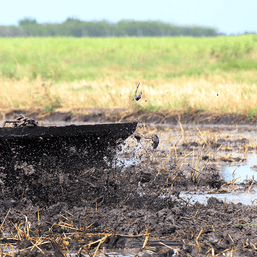
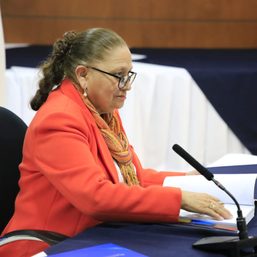
![[OPINION] No seat at the table: Where are youth in UN’s anticorruption conference?](https://www.rappler.com/tachyon/2023/12/youth-anti-corruption-conference-december-13-2023.jpg?resize=257%2C257&crop=414px%2C0px%2C1080px%2C1080px)
![[ANALYSIS] Crisis of the West, opportunity for the rest?](https://www.rappler.com/tachyon/2024/07/20240715-crisis-of-the-west-opportunity-for-the-rest.jpg?resize=257%2C257&crop_strategy=attention)

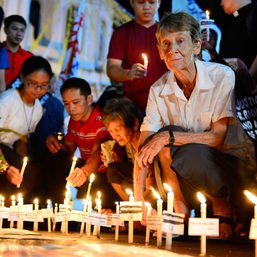
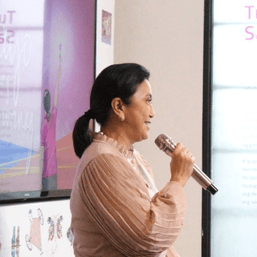

![[Closer Look] ‘Join Marcos, avert Duterte’ and the danger of expediency](https://www.rappler.com/tachyon/2024/06/TL-trillanes-duterte-expediency-june-29-2024.jpg?resize=257%2C257&crop_strategy=attention)



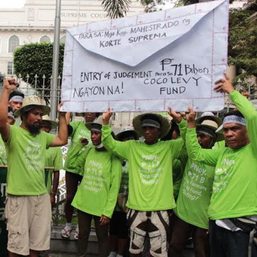
![[In This Economy] Making sense of BSP’s first rate cut in nearly 4 years](https://www.rappler.com/tachyon/2024/08/Making-sense-BSP-rate-cut-4-years-August-16-2024.jpg?resize=257%2C257&crop=183px%2C0px%2C720px%2C720px)
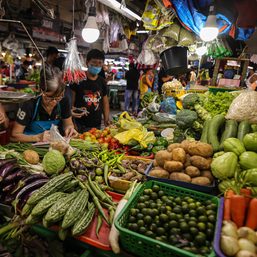
![[In This Economy] How I envy the Thais](https://www.rappler.com/tachyon/2024/08/thought-leaders-how-i-envy-thais-08102024-2.jpg?resize=257%2C257&crop=418px%2C0px%2C1080px%2C1080px)

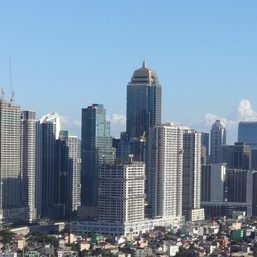
I appreciate the educational and inspirational content of this article by writer Vergel Santos. His analysis of poverty and its causes is very realistic and truthful, which may anger those belonging to the highest politico-economic class of our society. His recommendation of an “alternative constituency” is very laudable and noble, too. But I doubt it is strong enough, if not stronger, against the ruling political dynasties’ three-headed monster of corruption, repression, and disinformation.